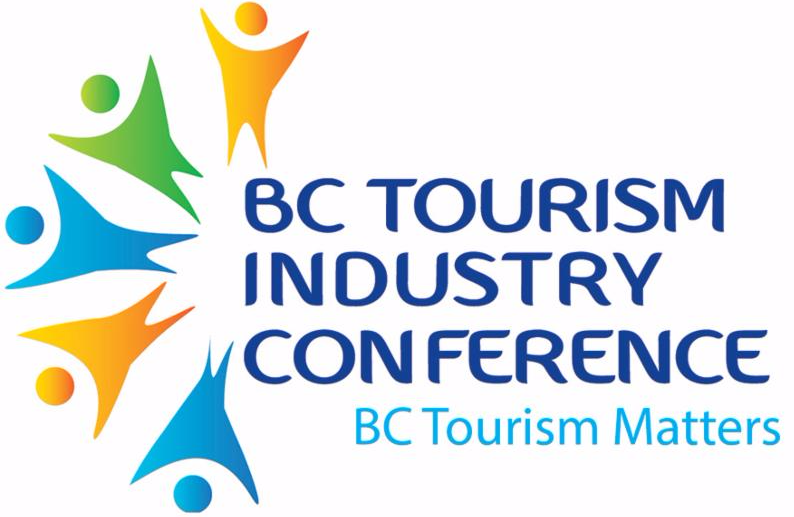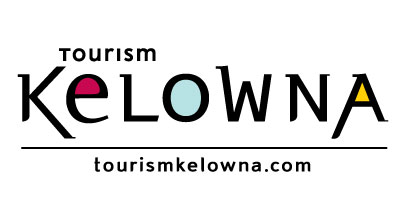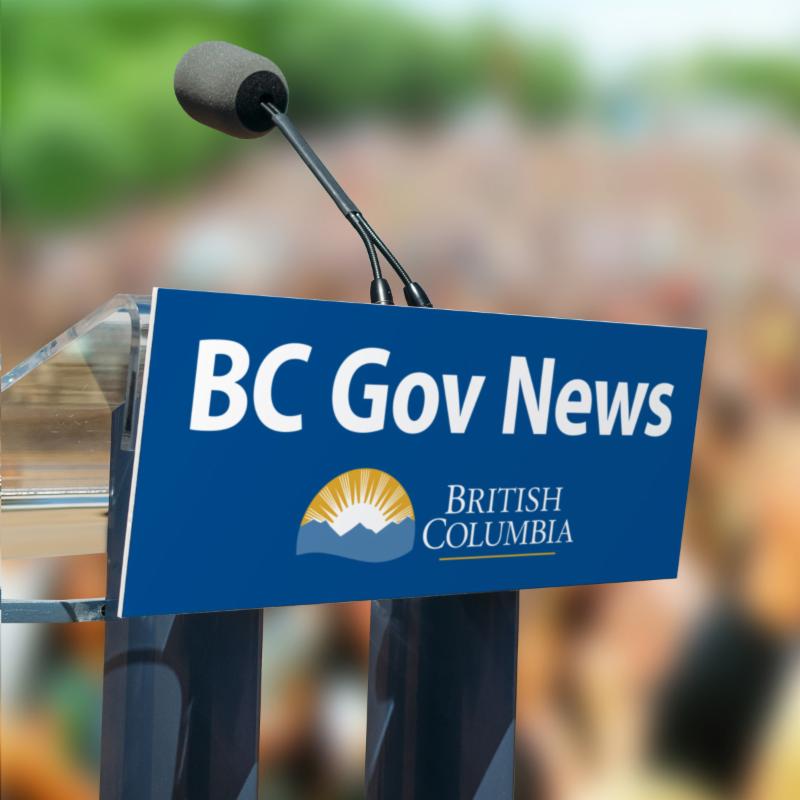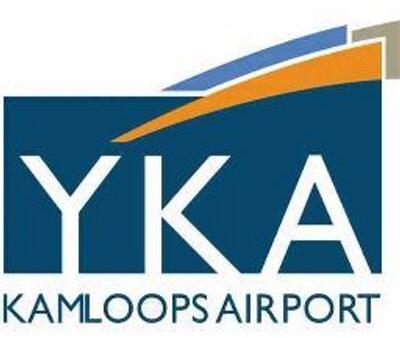|
Voice of the BC Tourism Industry
|
|
|
Merry Christmas from TIABC
|
|
|
CEO's Message

Even though it's our last newsletter of 2016, I'm still hoping to catch a few folks who may already have one foot out the door for a much-needed holiday break. So I'll be brief and avoid too much name-dropping.
Let me begin by saying thank you to our members around the province for being so engaged, so accessible, so helpful and so supportive as TIABC continues its work on behalf of industry.
Thanks to our 13-member Board of Directors (led by our hard-working Chair Jim Humphrey) as well as committee members who faithfully and enthusiastically volunteer their time and services to ensure that TIABC remains relevant and committed to accomplishing its goals and objectives.
I'd also like to acknowledge my colleagues, Laura Plant, Fiona Wray and Patti Smolen who do so much with so little to help me and our board achieve some amazing results.
Thank you to our many industry partners who are not only willing to assist TIABC whenever and wherever necessary, but also help support the annual BC Tourism Industry Conference in significant ways.
To our friends in government (on both sides of the house), I appreciate your willingness to listen and to take action on issues that affect the growth and vitality of British Columbia's visitor economy.
Tourism in BC has reached new heights, a reality that our industry should be fiercely proud of. Over the holiday season, I will raise a glass as a toast to my industry colleagues for your hard work, focus, perseverance, creativity, and willingness to go the extra mile.
Let me conclude by saying that it's been a privilege to serve you over the past year. I look forward to working with you in 2017.
Merry Christmas and Happy New Year. See you at the BC Tourism Industry Conference in Victoria.
Walt Judas,
CEO
TIABC
|
TIABC Welcomes New Member
V2V Vacations is a Victoria-based tourism transportation service,
bringing visitors directly from Vancouver harbour to Victoria harbour aboard a fully retro-fitted 270-passenger catamaran.
V2V Vacations will be launching their service in Victoria in March, 2017
|
TIABC Introduces Policy on Airport Privatization
The Government of Canada's
Transportation Act Review (Emerson Report) contains a recommendation that government consider privatizing and selling all major airports to generate revenue for other infrastructure projects.
In response, TIABC has developed a new policy on
Airport Privatization that endorses the existing model, to be shared with all levels of government
.
Since becoming a community-operated, not-for-profit authority in 1996, YVR has grown to an annual passenger count of over 22 million. The airport employs 23,600 people, is home to 400 businesses, and has expanded multiple times. YVR has invested some $3.1 billion in capital projects since becoming an authority.
As an airport authority, YVR has a demonstrated proven track record, is known for its community support and philanthropy, and has developed important and significant relationships with the BC tourism industry. YVR was a major contributor to the Canada Line transportation system that links the airport to downtown Vancouver.
TIABC believes that YVR's plans for further expansion to benefit the entire BC tourism industry has the best chance of succeeding under the existing structure.
The entire Privatization of Airports policy can be viewed on the members-only page of the
TIABC website.
|
Register By January 15 For Best Conference and Hotel Rates, Plus a Chance to Win a Trip on Helijet

Don't miss this opportunity to connect with other tourism businesses, communities and government leaders - share ideas, ask questions, network, learn, and explore.
Early-Bird registration ends January 15, 2017
|
Recognize the Best of the Best by Nominating an Industry Leader for a BC Tourism Industry Award
Destination BC
and the Tourism Industry Association of BC are pleased to open the call for nominations for the 2017 BC Tourism Industry Awards.
These awards recognize excellence in the province's tourism industry. Recipients provide outstanding service, exemplify best business practices, innovative marketing and deliver tourism experiences that contribute to the success of BC's tourism industry - which currently generates close to $15 billion in revenue for the province's economy.
Five awards will be handed out at the Tourism Awards Gala, held during the
BC Tourism Industry Conference
.
The submission deadline is January 9, 2017.
|
Travel Penticton Welcomes New Executive Director
Travel Penticton is pleased to announce the appointment of Thom Tischik to the position of Executive Director. Thom has decades of experience in tourism marketing and held key positions with both the Revelstoke Accommodation Association and Revelstoke Chamber of Commerce.
Thom officially takes up his new position on
January 3rd, 2017, but has already spent time meeting board members and staff and providing input on Travel Penticton's five-year destination marketing strategy.
"I am absolutely delighted to assume the role of Executive Director of the new Travel Penticton. As a native 'Okanaganite' I know the importance tourism plays in our valley economy and the balance between business growth and sustainability. Penticton has always been a favourite destination for me and I feel very fortunate to become part of the community." - Thom Tischik
Travel Penticton will be holding a reception in the New Year to formally welcome Thom.
|
Wilderness Tourism Association Welcomes New Executive Director
Scott has been actively involved in resource, recreation and tourism management in British Columbia for over 30 years. His passion is working with people to create practical solutions for positive social, environmental and economic outcomes.
Scott has lived throughout the Pacific Northwest and most of British Columbia. His educational background is in recreation management and public administration. He previously worked for the Province of BC holding a number of technical, management and senior management positions responsible for environmental management, land use planning and parks governance and management. Scott served as an Assistant Deputy Minister when he retired from the BC Public Service in 2011 and had been working as the Executive Director of the Grasslands Conservation Council of BC since 2012.
|
TIABC Bids Farewell to Tourism Richmond CEO
|
|
 |
| Tracy Lakeman and Walt Judas |
 |
Tourism Richmond's long-time CEO Tracy Lakeman is spending her last day in the office saying good-bye to her many friends, colleagues and business associates in BC and beyond.
Tracy has been an important contributor to TIABC and our provincial advocacy efforts. Her passion for the tourism industry locally and provincially is well recognized and sincerely appreciated.
Tracy's next phase includes "working a little less and playing a little more."
TIABC wishes Tracy the very best in her next adventures!
|
TIABC Receives a Reindeer for Christmas
TIABC received an early Christmas present from our member -
Green Tourism Canada.
Caribou are an iconic Canadian species. In Canadian currency, they grace the 25-cent coins. In the Arctic, they're under threat. According to most recent estimates, some herds are more than 95 per cent gone, making the plight of the Arctic's barren-ground caribou one of Canada's greatest current wildlife conservation concerns.
The adopted caribou gift supports WWF-Canada's work to help barren-ground caribou populations in Canada's Arctic recover. WWFC works with policy makers and communities in the Arctic to protect caribou calving grounds, commissions research to monitor the population of herds and creates conditions for caribou herds to make a comeback. WWF-Canada has a long track record of success in building sustainable development solutions that benefit wildlife, nature and people.
|
B.C. Hotels and Resorts Remove Some Red Tape on Liquor Laws
|
|
| Minister Coralee Oakes (centre) celebrates the announcement with the BC Hotel Association, ABLE BC and industry colleagues. |
British Columbia hotels and resorts with a bar, pub or restaurant on site will soon be able to allow their guests to carry unfinished liquor from their licensed establishment directly to their rooms.
Previously, guests were restricted to drinking alcohol in licensed areas and were unable to take their drink back to their room.
"B.C. has already welcomed over 4.5 million visitors from around the world this year, and these changes will allow our hotels and resorts the flexibility to provide them with best possible experience," said Minister of Small Business Coralee Oakes.
"By repealing unnecessary liquor restrictions and cutting red tape, we are creating new opportunities for B.C. businesses and increased convenience for British Columbians."
Hotels and resorts that own a bar or pub onsite will also soon be able to provide guests with a complimentary standard-sized alcoholic beverage upon check-in.
The changes are a response to feedback received directly from British Columbians during the Liquor Policy Review and will come into effect on January 23, 2017.
|
|
#BCTourismMatters
Tourism Kelowna Numbers Are Up

Tourism Kelowna announced growth stats at their recent AGM; between September 2015 and August 2016, hotel occupancy rose 3.3% with notable increases in the spring and fall months.
New B.C. Wine Regulations to Highlight Local Terroir and Flavours
 Updates have been made to wine regulations in B.C. that will help provide consumers with more information about where their wine is produced.
The B.C. government has updated the Wines of Marked Quality Regulation so B.C. wineries can more easily promote details of the wine that are specific to where it's produced.
With the new regulations in place, it will be easier to indicate sub-geographical regions like the Okanagan Valley, which is one of seven officially recognized geographical and sub-geographical regions in the province.
Geographic indications are a standard element of the labeling systems that exist in B.C. and around the world, which provides shoppers with assurance about the origin and quality of the wine.
Kamloops Airport Numbers on Par with 2015
 The number of travellers to Kamloops Airport continues to fall as the full impact of the oil-patch recession in Northern Alberta is felt.
The number of travellers in November fell by 3.5% from the same month last year. Year-to-date traveller numbers are marginally higher.
Last month, 25,470 people passed through the airport, compared to 26,383 in November 2015. Through 11 months this year, the airport has served 293,083 travellers, less than a half-percentage point more than the 291,821 who used the facility through November 2015.
Meanwhile, a project to rehabilitate the eastern portion of the airport's main apron is almost done, with the remainder of the project scheduled to start in April and be completed in May.
www.kamloopsthisweek.com/year-date-kamloops-airport-passenger-numbers-par-2015/
|

Research
Tourism Indicators
Restaurant receipts increased by 10.4% in September 2016 compared to September 2015. October passenger volume to Vancouver International Airport has increased by 9.1% compared to the same period last year. For more tourism indicators, visit the Destination BC website
.
Customs Entries
October saw an impressive increase for international overnight entries to BC and Canada, up 12.1% and 12.5% overall. Year-to-date entries have also increased 12.2% for BC and 11% for Canada. For more details, visit the Destination BC website.
The number of total overnight visitors to Metro Vancouver
year-to-date
2016 is up by 7.2% over
year-to-date
2015 volumes.
The number of Vancouver-Alaska cruise revenue passengers year-to-date 2016 was up by 4.1% when compared to year-to-date 2015.
Source: Tourism Vancouver December newsletter
|
Indigenous Tourism Receives $3.15M for Implementation of the Path Forward 2016-2021
Indigenous tourism is a key economic driver in generating long-term social and economic benefits for Indigenous people and for all Canadians.
Recently, the Honourable Carolyn Bennett, Minister of Indigenous and Northern Affairs, announced an investment of
$3.15 million for the implementation of a five-year national strategy, the Path Forward 2016-2021. This includes a contribution from Innovation Science and Economic Development.
The implementation of this strategy over the next few years will support and promote both new and existing Indigenous tourism businesses, enhance product and market readiness, increase the visibility of the Indigenous tourism industry, and facilitate the sharing of best practices within and between regions.
This investment will ensure that Indigenous communities can continue to grow the tourism industry, which is shared and celebrated worldwide, differentiating
Canada as a unique tourism destination while respecting and strengthening Indigenous traditions and cultures.
|
Summary Report: Consultations and Public Opinion Research on the Future of Immigration in Canada
Earlier this year, TIABC participated in Immigration Refugees and Citizenship Canada (IRCC) consultations on the future of immigration in Canada. T
he
summary report
on the consultation is now available online. Below is a brief summary of findings:
Strengthening our Canadian Fabric
Overall, stakeholders support a measured increase in immigration levels over multiple years that balances regional demographics and economic needs.
Unlocking Canada's Diverse Needs
Throughout the discussions and online submissions, stakeholders and the general public acknowledged that while immigration can help to fill demographic and economic gaps, it is only one component of a larger strategy to meet labour market needs and that it should be balanced with fostering talent within Canada and ensuring that Canadians have the supports and opportunities they need to join and stay in the labour market.
Modernizing our Immigration System
Overall, stakeholders and some members of the general public supported an approach to planning immigration levels that would be set over several years (multi-year planning) instead of the current approach of publishing one-year plans, provided that plans remain flexible enough to accommodate emerging economic trends, world events and new programs.
Leadership in Global Migration and Immigration
There was general consensus among stakeholders that Canada is a leader in refugee resettlement and immigration. Many stakeholders at the round-table sessions indicated that Canada follows most of the established best practices for settlement and integration and that the Government of Canada should facilitate the sharing of these best practices across the country and around the world.
|
|
|
In This Issue
|
CEO's Message
TIC Registration Opens
Tourism Awards Nominations
Industry News
#BCTourismMatters
Research
Calendar of Events
|
|
February 22-24, 2017
Victoria, BC
BCHA / ABLE BC
April 3 & 4, 2017
Victoria, BC
September 25-29, 2017
Vancouver, BC
Visit TIABC's
Event Calendar for more events.
Tell us about your event and we will add it to the list.
|
|